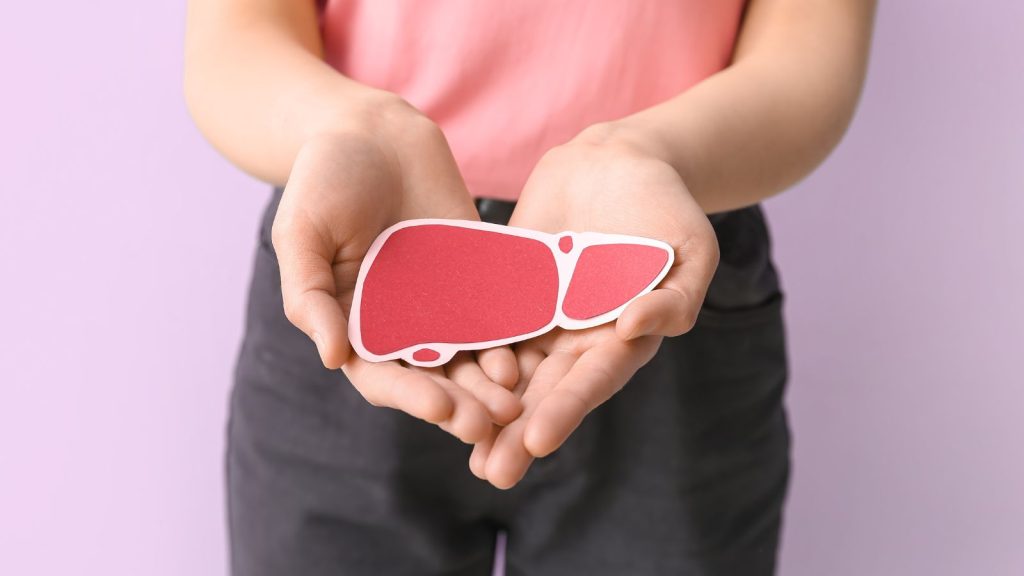What Does Your Liver Do All Day?
Your liver is one of the hardest-working organs in your body, and every day it handles hundreds of jobs. Its main purpose is to keep your blood clean and filtered, so everything that you eat, drink, or swallow (including vitamins, pain relievers, and prescription or over-the-counter medications) has to pass through your liver before it can make its way to its intended location.
Your liver is designed to break down chemicals, turn food into energy, store nutrients, and remove waste and toxins. When you take any kind of medicine, your liver often has to process it so your body can use what it needs and safely dispose of what is left over. If you take too much of even an over-the-counter drug like acetaminophen, your liver gets overloaded and is unable to filter out all the toxins fast enough, and what is left unfiltered can build up and damage your liver cells.
How Do GLP-1 Medications Affect Your Liver?
Most GLP-1 medications are administered by injection, so they skip the “filtering” process that the liver has to go through when you swallow medication orally, so your liver just responds to the changes that the medication causes. GLP-1 injections reach your liver through your bloodstream and are absorbed slowly, which is easier on your liver when compared to many oral medications that must be processed directly through it.
Medications like Ozempic, Wegovy, Mounjaro, and Zepbound were made to help control blood sugar and also help to promote weight loss, but they also affect the liver in a few ways.
- They lower your blood sugar and insulin levels, which gives your liver a break from constantly storing and releasing sugar;
- They help you lose weight and reduce the amount of visceral fat you are carrying, which is the ‘bad’ type of fat that builds up around your organs and inside of your liver. Too much of this bad fat can cause a serious condition called non-alcoholic fatty liver disease (NAFLD). If it is not treated, it can progress to other more serious conditions and even liver failure. Studies have shown that GLP-1 medications can help to stop or even reverse liver damage (fibrosis).
So the bottom line is that your liver can benefit from the changes that GLP-1 medications make, and most people experience improved liver health as a result of the enhanced blood sugar control, the elimination of visceral fat, and the reduction of inflammation. In rare instances, some individuals have experienced issues with their liver, so it is recommended that you have labs done every so often to ensure that your liver is functioning as it should and that everything is within normal limits.
Will Taking GLP-1 Medications Ruin Your Liver?
The popularity of GLP-1 medications like Ozempic and Wegovy is soaring, but so are the rumors. Are these weight loss powerhouses safe for your liver, or is there something you should be worried about?
FAQs About How GLP-1s Affect the Liver
Can Ozempic Cause Liver Problems?
Serious liver damage from using Ozempic or other GLP-1 drugs is very rare, but it has been reported. If you are currently suffering with a liver condition, it is critical that you speak with your doctor before starting these medications.
GLP-1 drugs like semaglutide and tirzepatide can usually help individuals with fatty liver disease because they help to lower liver fat and improve liver inflammation for many people. Your doctor may wish to check your liver enzymes before starting your treatment and periodically during your treatment to monitor your progress.
Do Semaglutide and Tirzepatide Help the Liver?
Yes, the research to date indicates that these drugs can help reduce liver fat and inflammation, and in some cases, improve liver scarring. A study we mentioned earlier was published in the New England Journal of Medicine in April 2025 and reported significant improvements in liver inflammation and accumulated fat among patients treated with semaglutide. Tirzepatide has also shown impressive results for weight loss and blood sugar control, and these early studies have demonstrated that it can reduce liver fat and improve other lab results as well. Maintaining a healthy weight and keeping your blood sugar in balance help to keep your liver healthy, and doctors believe these medications can help many people with fatty liver disease improve their health and lower their risk of progressive liver damage.
Do Semaglutide and Tirzepatide Cause Liver Damage?
Serious liver damage from these prescription drugs appears to be rare. Published safety summaries report that most large clinical trials have not found a higher rate of liver injury from semaglutide or tirzepatide in patients compared with those using the placebo. There were a few rare case reports that described liver injury after starting these medicines, which indicates that it is possible for some individuals to have a bad reaction that affects their liver, but this has been very uncommon in the data we have to date. If an individual is already dealing with advanced liver disease, the drug labels do issue a warning that the medication should be used with caution and only under a doctor’s supervision.
Can Ozempic or Mounjaro Cause Elevated Liver Enzymes?
Many people who lost weight on these drugs during the trials actually showed improvements in their liver enzymes. Some patients did experience slight increases in enzymes, and a very small number of case reports noted a more noticeable enzyme rise after starting these medications, but these cases are rare. If your liver enzymes go up while taking these medicines, your doctor will normally pause your medication and run tests to determine the cause.
Where Can I Learn More about GLP-1 Medications and How They Can Help Me?
Dr. Angelina Postoev at IBI SlimMed can assess your medical history and determine if GLP-1 medications would be a good fit for you. She can guide you in requesting lab work that can provide a quick indicator of your liver health and set up a weight loss plan that will be safe and effective. Set up a consultation to learn more and get started on improving your health and gaining control over your weight.





